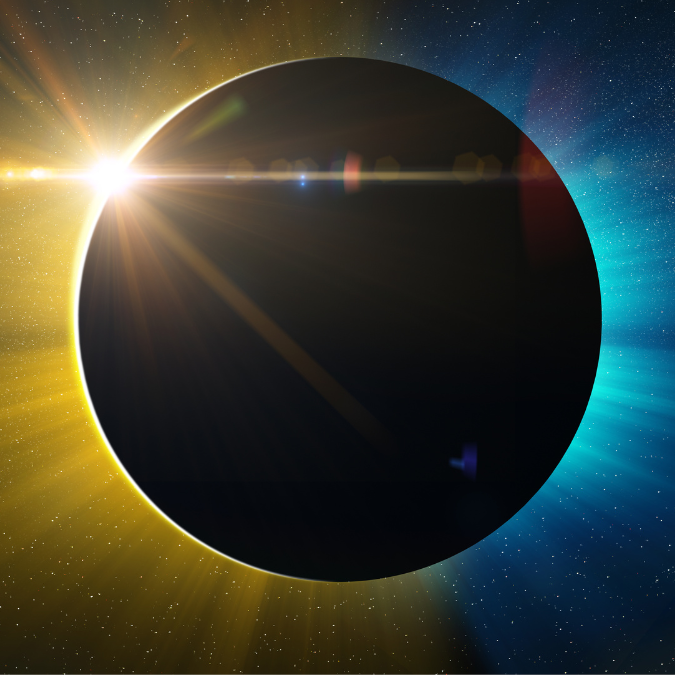Seanna Watson
I often wonder what it might have been like for early humans to experience an eclipse. Though a total solar eclipse is visible from some place on the Earth’s surface about once every 18 months, the average interval between total solar eclipses for any given location on Earth is close to 400 years. So it’s likely that for most people, there would not have been an eclipse in living memory. Imagine seeing the Sun go out in the middle of the day, with no idea when (or if) it would be coming back!
We have been able to predict partial solar eclipses and lunar eclipses for a few thousand years, though accurately predicting totality has only been possible for the last few hundred years: Notably, in 1715, Edmund Halley used Isaac Newton’s recent theories of gravity and mechanics to predict an eclipse in London. But in 2024, just a few taps or clicks fetches NASA’s “Five Millennium Canon of Solar Eclipses: -1999 to +3000,” detailing the 11,898 eclipses of the Sun during that period (4,200 partial eclipses, 3956 annular eclipses, 3173 total eclipses, and 569 hybrid eclipses).
Since the vast majority of our readers are in North America, it’s likely that everyone knows about the upcoming total eclipse, on April 8. In summary: It will be an impressive sight, but make sure to use appropriate eye protection (and watch out for counterfeits). Here is some additional information:
Wishing clear skies and safe viewing to everyone who will be able to view April 8’s eclipse! And please share your comments, experiences, and photos below.

